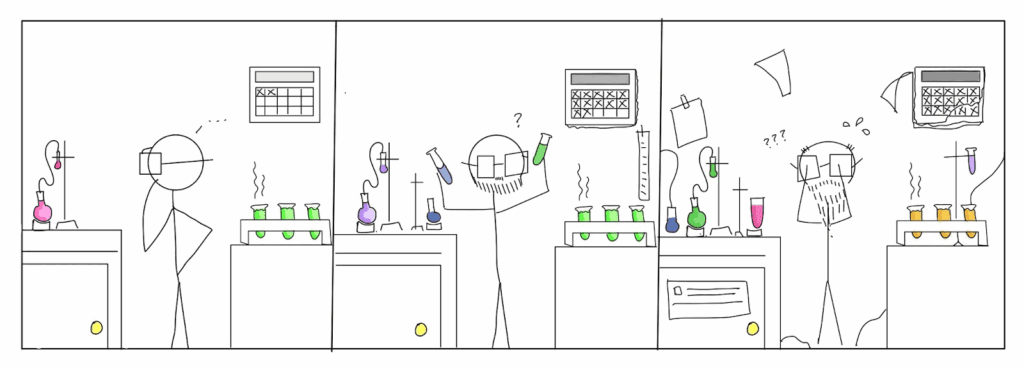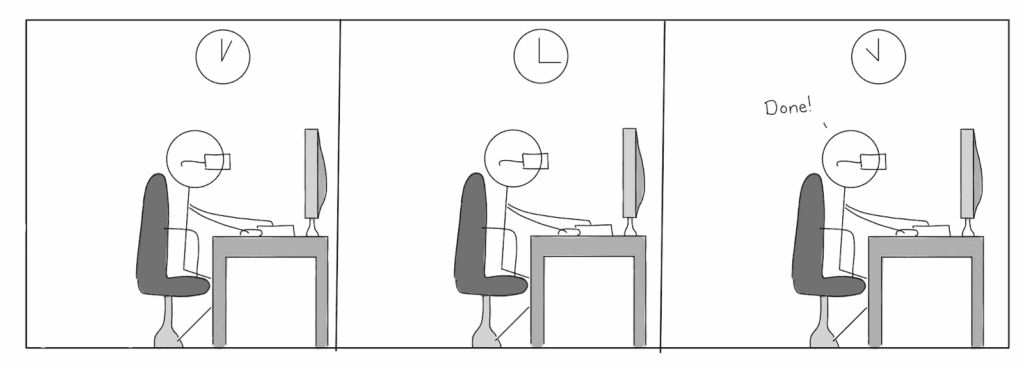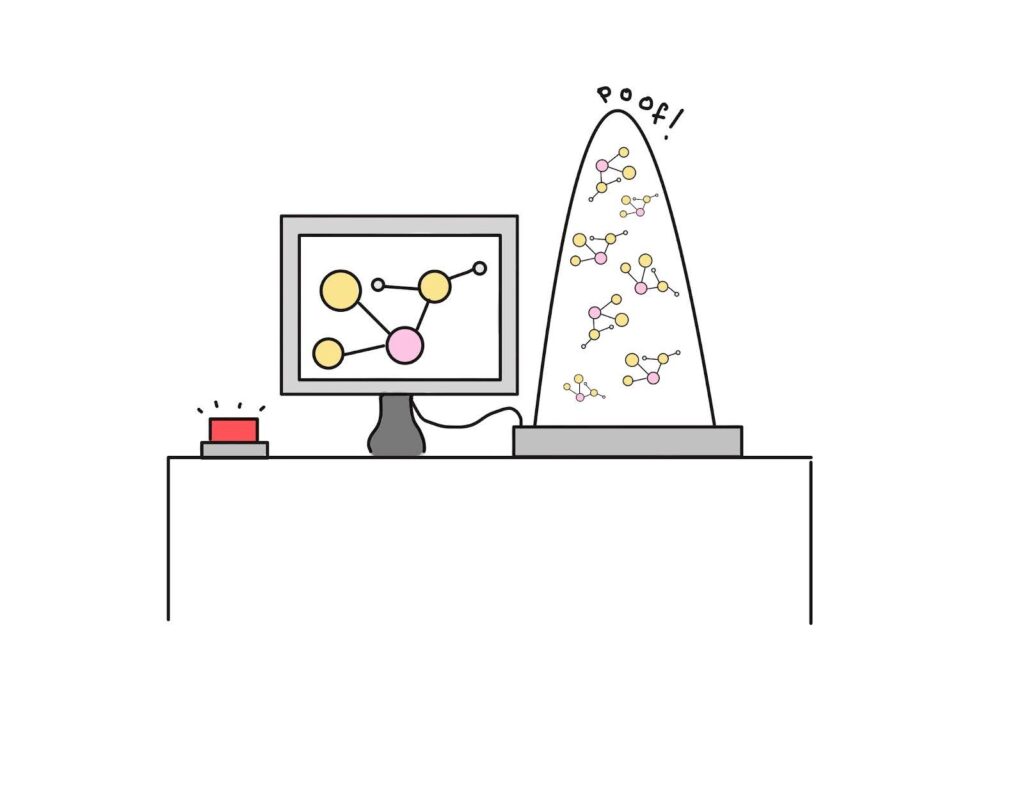How Quantum Principles are Transforming Chemistry
By now, we all have a pretty good idea of how AI works: you write a prompt in plain English, deliver it to a chatbot, and then out pops a piece of writing, an image, or code. Pretty neat, right?
Now imagine if there was something like that for real things. Imagine you wanted to create a new medicine for sore muscles or a new material for car tires, and all you had to do was push a button to get it. You need a new medicine molecule? Poof! You’ve got it.
It might sound totally sci-fi now, but we’re actually closer than you might think. Quantum chemistry is already being used to help chemists discover and create new molecules using quantum principles and computers instead of traditional laboratory techniques. While the push of a button might be off— speeding up the process certainly isn’t!
How does quantum help chemistry?
Okay, let’s say we are a chemist looking to create a phone battery that doesn’t die in the early afternoon. We’ll need a new material for that, so the process of finding one will typically go like this: identify a few possible molecules, try to synthesize them in the lab, test the results to see if they work, and repeat the process when they don’t. After many experiments, tears, and years, we’ll have a new material.
Sounds tiring? It is. It’s also why molecular discovery and design can take up to 20 years from lab to market.

Using quantum principles for molecular discovery offers chemists an alternative: Instead of starting with that tedious trial-and-error process, chemists can seek to understand molecular behavior at the quantum level before even stepping foot into the lab.
Take our phone battery, for example—this really happened. Scientists wanted to make a new material for phone batteries to use less lithium and used quantum principles to speed up the process of finding a new material for it. A high-powered computer simulated the 32 million possible options, a machine-learning model sorted and narrowed it down to 500,000, and a quantum chemistry method called Density Functional Theory came up with a final 150.

Only then did the scientists head into the laboratory with 18 compounds to try. In less than a week, they went from 32 million options to 1 top material that used 70% less lithium. Poof!
The future of quantum chemistry
Quantum chemistry can do what traditional chemistry does in a fraction of the time; it’s no surprise that scientists are looking to quantum to be the future of chemistry.
While quantum machine learning and algorithms are being used right now, quantum computing is the next application of quantum; people are looking to change the game for chemistry.
For example, scientists have already used a neutral atom quantum computer to speed up the drug discovery process. Instead of trial-and-error in the lab, they used quantum algorithms and neutral atom quantum computing to map how water molecules affect biological processes. Eventually, that information could be used to help a drug bind to a protein in the body.
This is just one type of quantum computer; a universal quantum computer is hopefully on the way. That kind of quantum computer could simulate the entire complex process of drug discovery—dramatically cutting down the timeline of drug discovery from 20 years.
For these reasons, quantum is the source of a lot of excitement for chemists. Putting quantum algorithms, machine learning, and computation toward chemistry opens a new world of possibilities in molecular discovery. Who knows, maybe molecules with the push of a button is next.

**
Works Cited
Scientific Papers
Gacon, Julien, et al. “Dual-frame optimization for gate-model quantum programs with applications to protein folding.” Physical Review Research, vol. 6, no. 4, 2024, https://journals.aps.org/prresearch/abstract/10.1103/PhysRevResearch.6.043020.
Kohn, Nathan, et al. “Quantum-enhanced Markov chain Monte Carlo.” arXiv preprint arXiv:2401.04070, 2024, https://arxiv.org/abs/2401.04070.
Blog Posts
Microsoft Azure Quantum Blog. “Accelerating materials discovery with AI and Azure Quantum Elements.” Microsoft Azure, 9 Aug. 2023, http://azure.microsoft.com/en-us/blog/quantum/2023/08/09/accelerating-materials-discovery-with-ai-and-azure-quantum-elements/.
World Economic Forum. “How quantum computing could accelerate drug development.” World Economic Forum, Jan. 2025, https://www.weforum.org/stories/2025/01/quantum-computing-drug-development/#:~:text=Quantum%20computing%2C%20by%20optimizing%20processes,to%20their%20specific%20biological%20profiles.
Serena Krejci-Papa is a first-year master’s student at the University of Barcelona studying Theoretical and Computational Chemistry with the Erasmus Mundus program. She writes about complex science topics in a way that makes people laugh. You can find more about her at Sciencewithserena.com.
For general questions about IYQ, please contact info@quantum2025.org. For press inquiries, contact iyq2025@hkamarcom.com.


